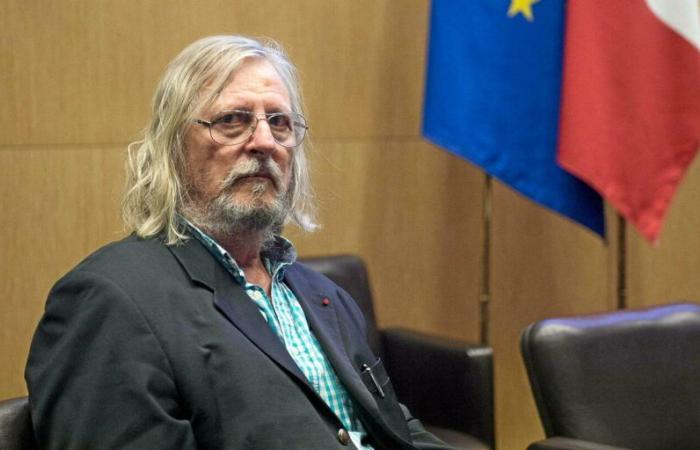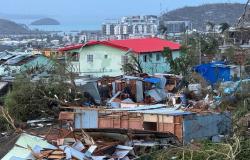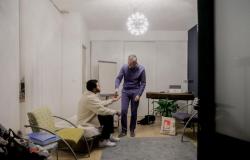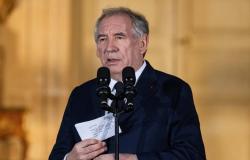En March 2020, as the Covid-19 pandemic begins to threaten the entire world, a French study raises immense hope. Published in the journal International Journal of Antimicrobial Agents by Pr Didier Raoult and his team from the IHU in Marseille, it seems to demonstrate the spectacular effectiveness of hydroxychloroquine (HCQ) combined with azithromycin against the coronavirus. This historic study has just been retracted by Elsevier, its publisher. Scientifically, this means that it no longer exists, that its content is no longer valid. In other words, it does not demonstrate the effectiveness of hydroxychloroquine against the Covid virus. The final blow for Didier Raoult.ALSO READ EXCLUSIVE. The IHU and Marseille hospitals launch an alert against Professor RaoultThe Marseille infectious disease specialist had threatened, by letter from a lawyer, to sue Elsevier in the event of retraction of this article. Unprecedented in this academic environment where the debate is decided on the basis of scientific and not legal arguments. It is therefore a victory for doctors, researchers, whistleblowers and journalists, who during the pandemic have continued to denounce this publication marked by enormous methodological biases, but also gross manipulation of the results.
Every Tuesday at 9:30 a.m.
Receive our selection of articles from our Health section as well as the rankings of hospitals and clinics, special files, advice and tips…
Merci !
Your registration has been taken into account with the email address:
To discover all our other newsletters, go here: MyAccount
By registering, you accept the general conditions of use and our confidentiality policy.
But a victory with a very bitter taste, because this retraction comes almost 5 years too late. “This should have been done in the days or at worst the weeks following the publication of this irresponsible article,” says Fabrice Franck, doctor in biochemistry and one of the main whistleblowers during the pandemic. Elsevier backed down in the face of threats of legal action brandished by Didier Raoult. Which raises the question of the responsibility of this publishing house for the damage caused by this study. Even the scholarly society that manages this journal had long declared that this study was problematic. »
La « folie hydroxychloroquine »
Indeed, despite the denials and reassuring speeches that the Marseille infectious disease specialist will give on TV, on YouTube or on social networks, it will very quickly be shown that hydroxychloroquine is responsible for excess mortality among Covid patients.
“Thanks to pharmacovigilance, 8 cardiac arrests were reported, 4 of which led to death, just during the first month of HCQ prescription in France. Subsequently, large studies estimated an excess mortality of 11% in patients who received HCQ. So there are tens, even hundreds of thousands of deaths around the world that we owe to the hydroxychloroquine madness,” assures Mathieu Molimard, professor in the medical pharmacology department of Bordeaux University Hospital and one of the fiercest opponents. to the infectious disease specialist’s theses.
ALSO READ Professor Raoult suspended (too late) by the Order of PhysiciansThis late retraction is difficult to understand as the alerts did not take long: “On April 3, a few days after the publication of the study, I made a video which had around 400,000 views in which I explained Didier Raoult’s fraud, how he rigged his results. But it went unnoticed by the traditional media,” says Alexander Samuel, doctor in biology and mathematics teacher in a high school in Grasse.
The young math teacher especially regrets that attention was focused on the poor quality of the study and its methodology. “If we had admitted straight away that this was based on scientific fraud, I think the seriousness of the situation would have been understood. Faking your results to make it appear that a treatment works is not the same as having vaguely positive results with an imperfect methodology. »
ALSO READ EXCLUSIVE. French anti-vax conspirators are preparing a lucrative business in BrazilThis fraud will also be publicly and forcefully affirmed in the show Further investigationby Louis Schweitzer, then vice-president of the Board of Directors of the IHU. But in November 2022, still too late.
Populists and conspiracy theorists in support
Lonni Besançon, researcher at Linköping University, in Sweden, very committed to the fight against disinformation on Covid-19, insists on this point: “There is also possible fraud during the evaluation of the article by peers supposed to validate the scientific quality of the article. Usually it takes time. There, it was completed in just one day. Some of the data indicating that this proofreading was very rapid has since been removed from the publisher’s site. In the case of studies like this, which can change clinical practice and public health policy, it is very important to act very quickly. »
What did the study say? “Hydroxychloroquine treatment is significantly associated with a reduction/disappearance of viral load in patients with Covid-19 and its effect is enhanced by azithromycin.” Results which quickly went around the world, relayed by influential personalities and even heads of state, including Donald Trump in the United States and Jair Bolsonaro in Brazil.
ALSO READ Didier Raoult: 30 years of wild experiments on human beingsThe article thus had a major impact on the management of the pandemic: massive promotion of hydroxychloroquine as a miracle treatment, shortages for patients suffering from diseases such as lupus or arthritis routinely treated with this drug and a considerable waste of resources in attempting to replicate these results. HCQ has even become a sort of symbol against the pharmaceutical industry within the conspiracy and anti-vaccination sphere.
A scientific journal called into question
However, the methodological biases, noted from the first days, were obvious to anyone who knew how to read a scientific publication. They concerned a very small sample of only 26 treated patients, the absence of randomization, that is to say random distribution of patients between treated group and untreated control group, an unsuitable control group, composed of patients from other hospitals, and inconsistencies in reported data.
“Patients in poor condition, transferred to intensive care or deceased, were excluded from the analysis, further biasing the conclusions. The study was also published in record time – just one day – by a journal whose editor was affiliated with the authors, raising questions about the rigor of this peer review,” recalls Doctor Jérôme Barrière, medical oncologist. , member of the Scientific Council of the French Cancer Society and very involved in the fight against medical disinformation.
ALSO READ In court, Professor Didier Raoult backs down at the last minute
To Discover
Kangaroo of the day
Answer
The story is not over. This study is the first in a long series published by the Marseille professor and his team, with more and more patients treated each time. The last one, covering more than 30,000 patients, was retracted in 2023 and taken to court by the National Agency for the Safety of Medicines and Health Products.
Removed from the management of his IHU in September 2022, retired, banned from the scientific community, suspended by the Order of Physicians a few months ago, Didier Raoult will have to face several legal proceedings in the months and years to come for his tests deemed illegal. As they say in Marseille, if you pretend too much…






